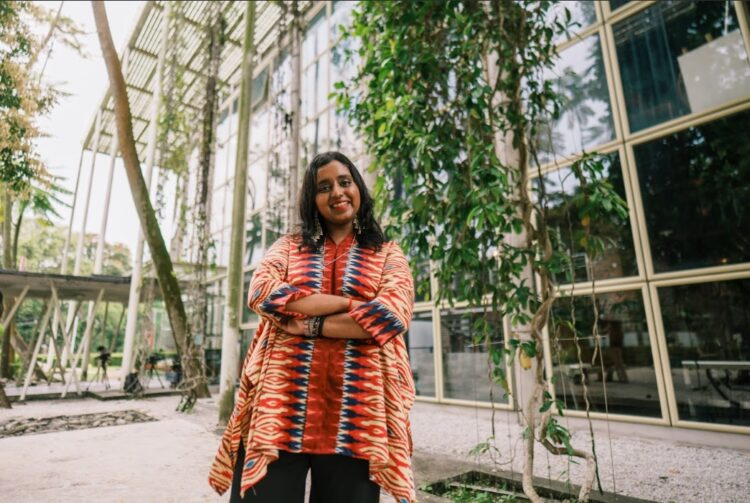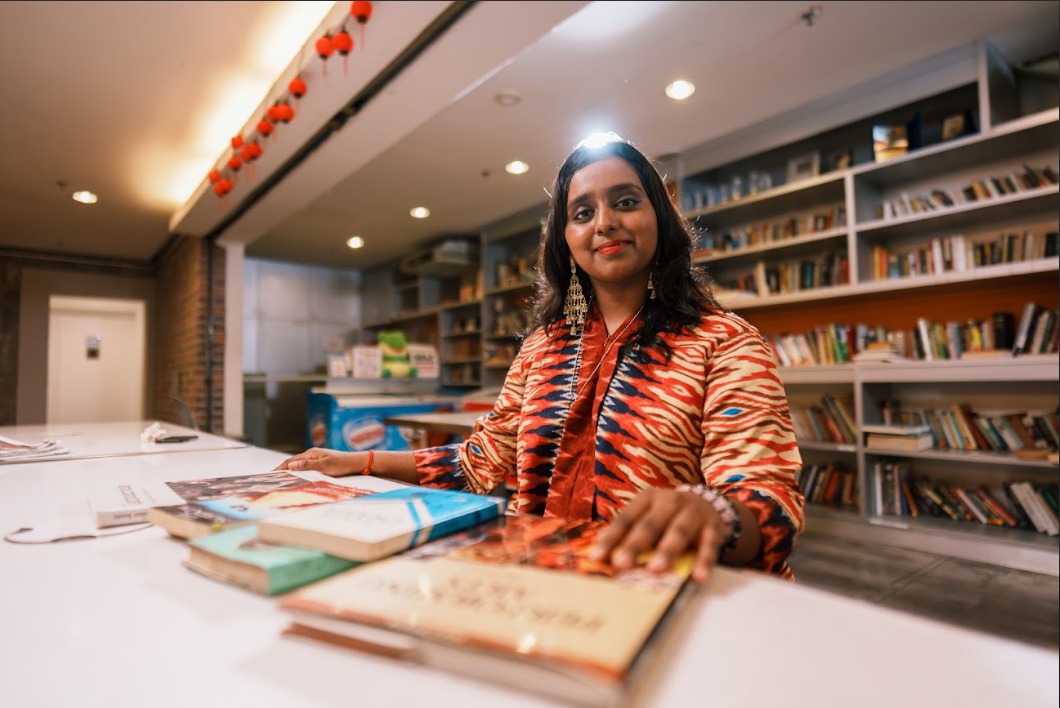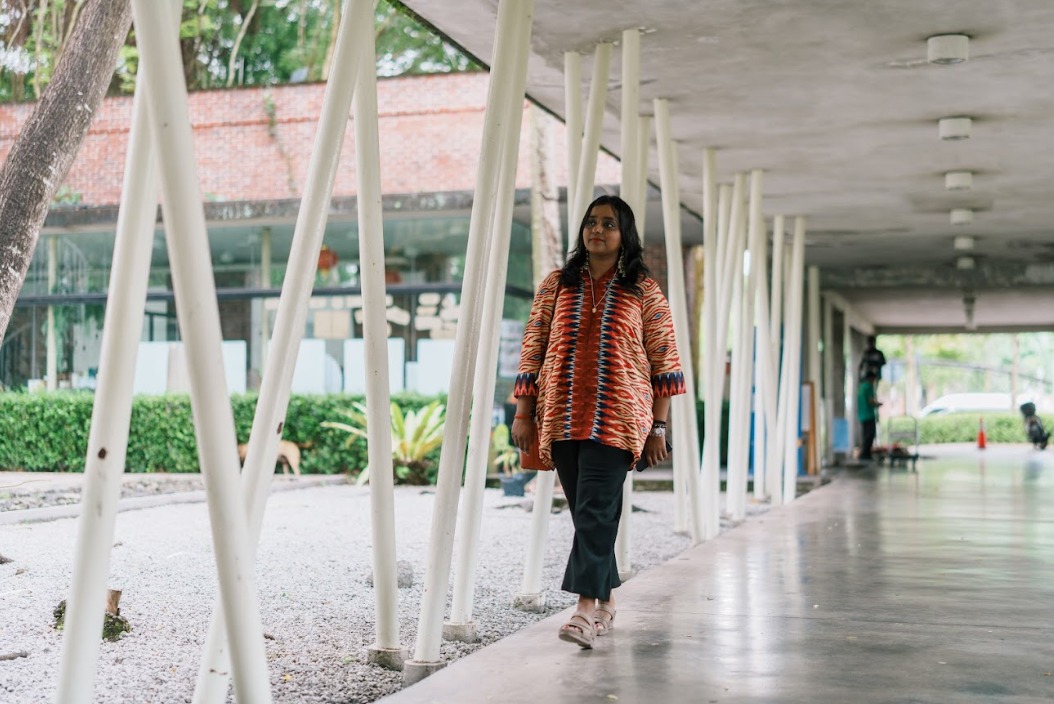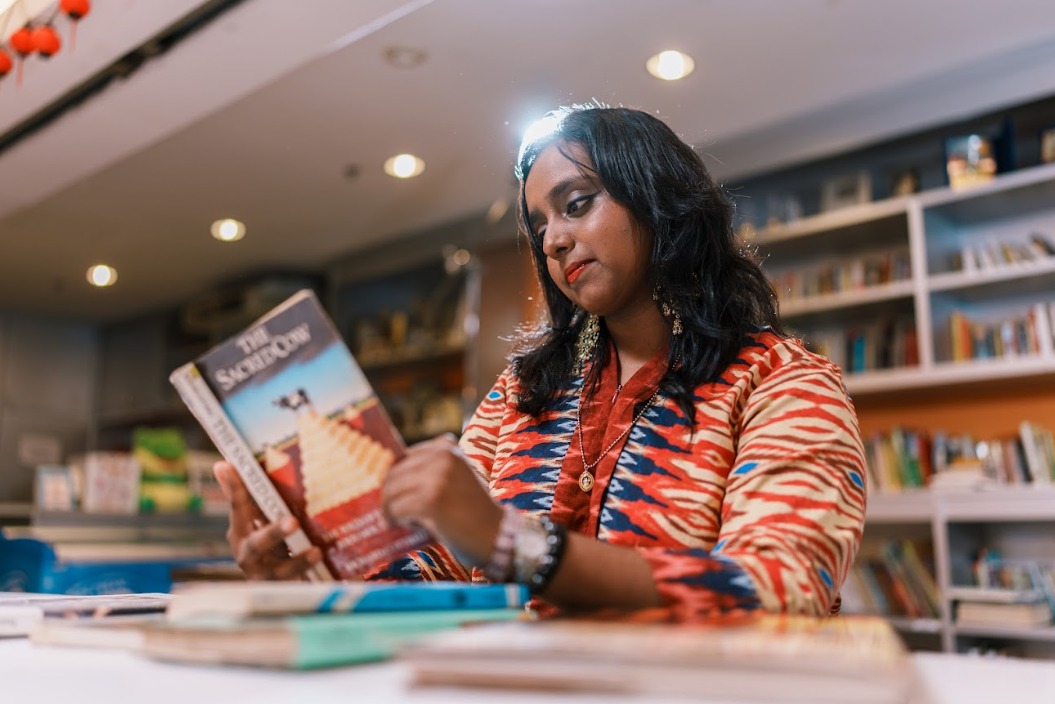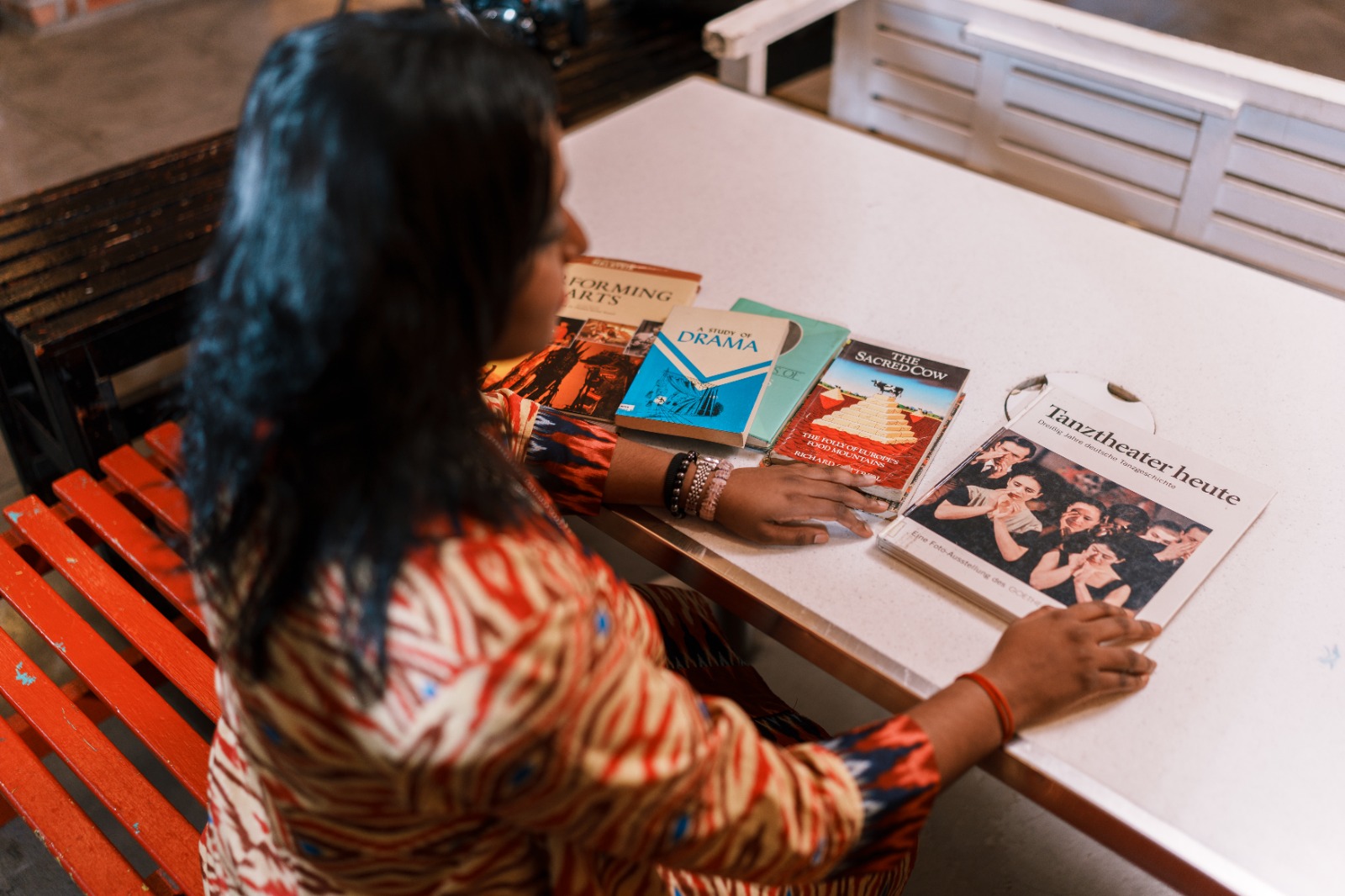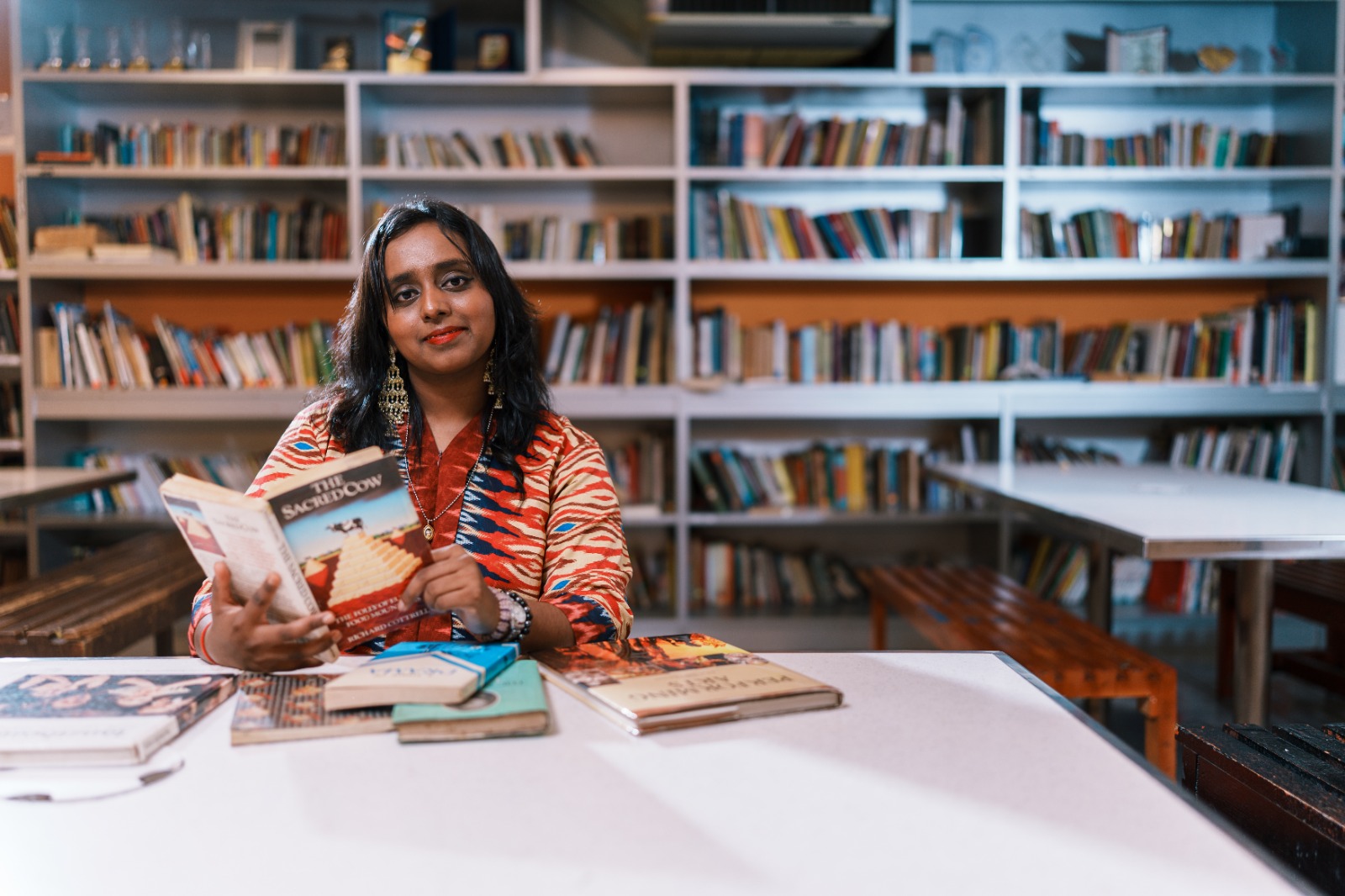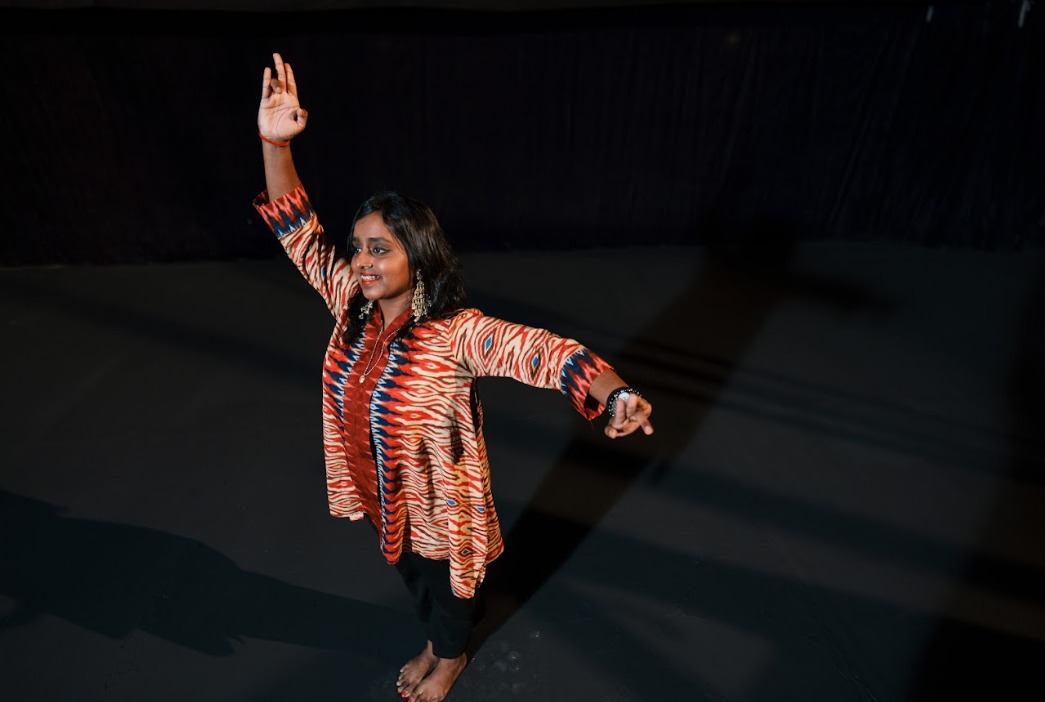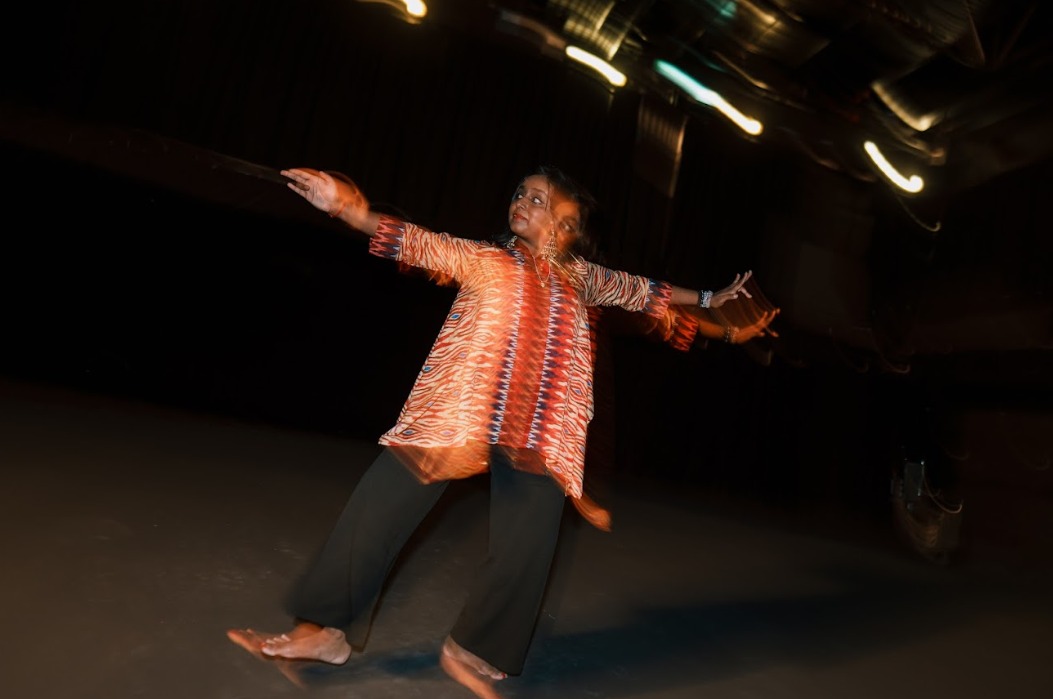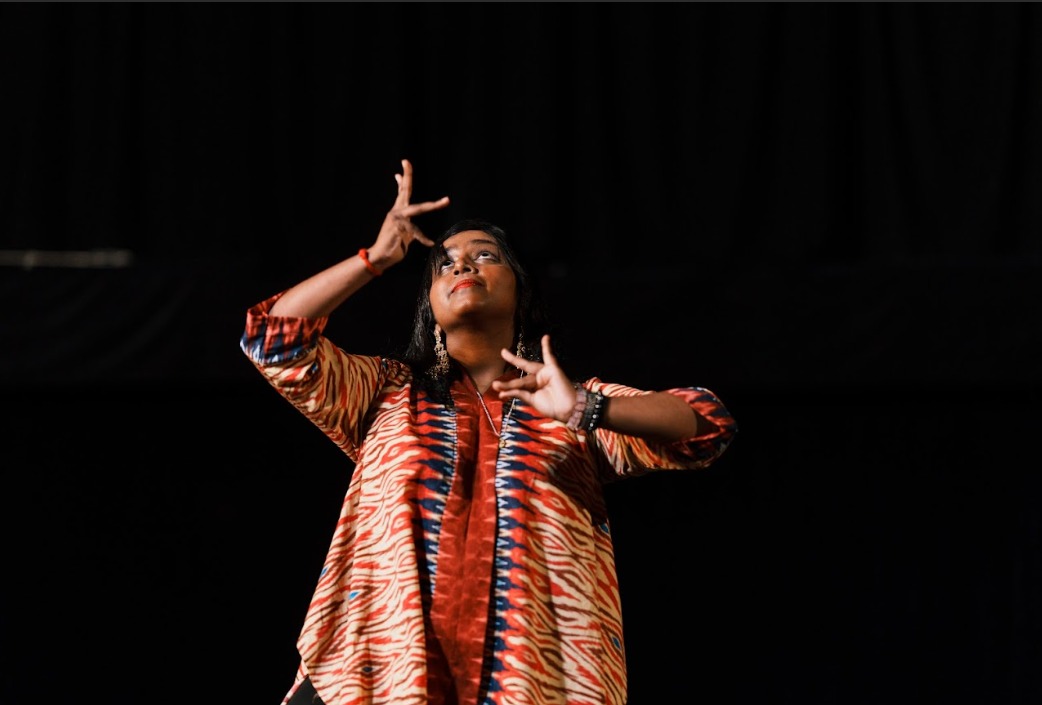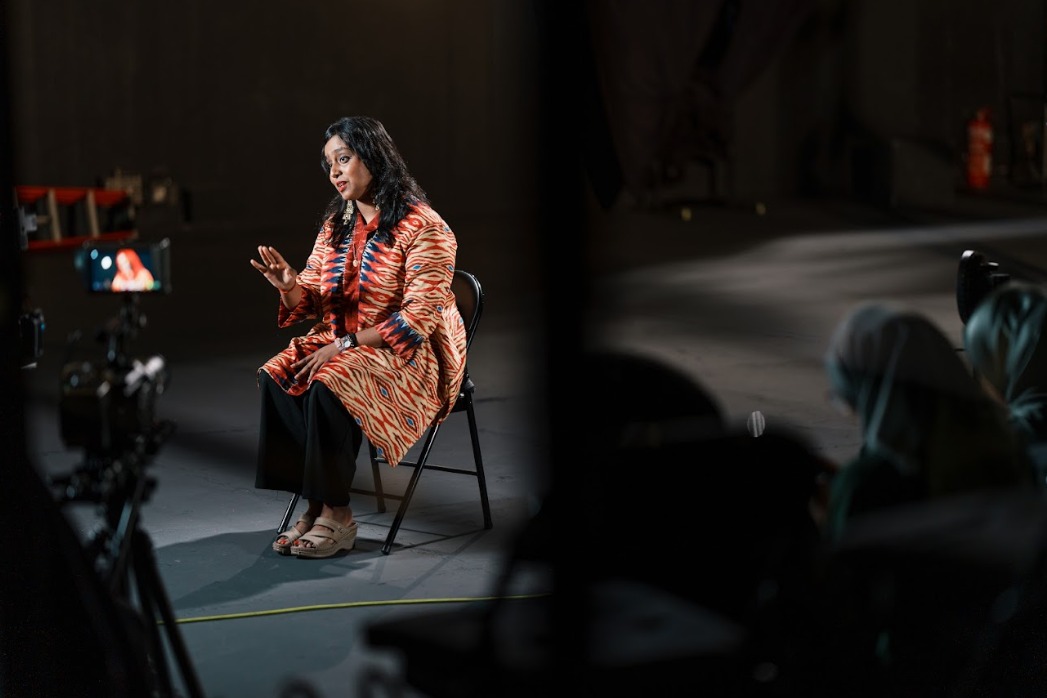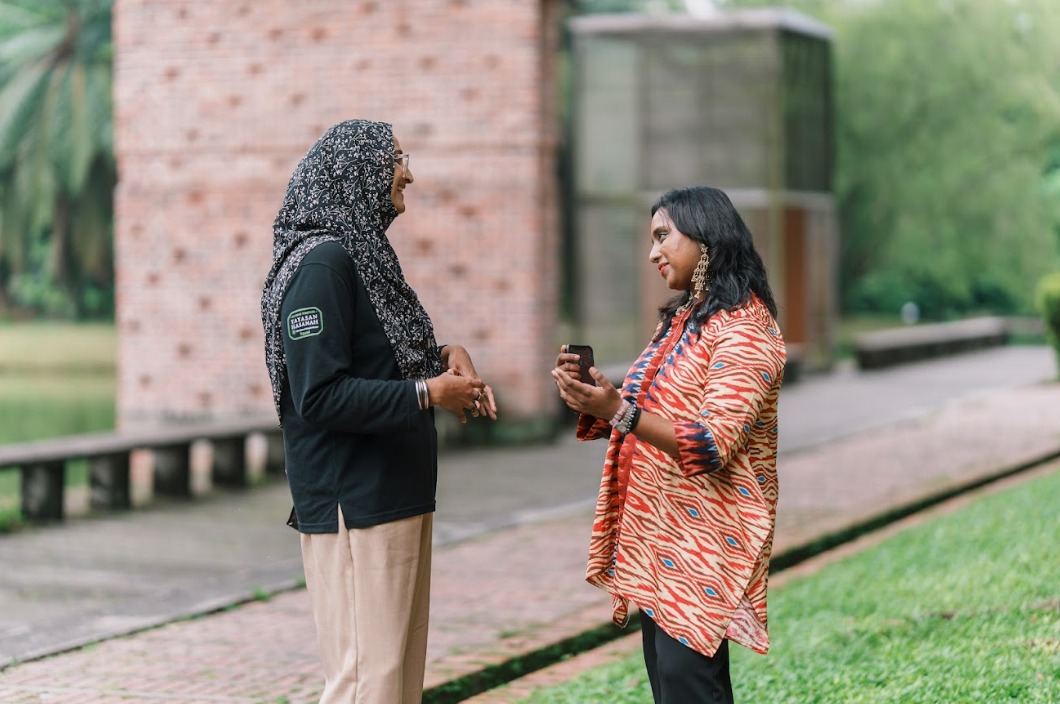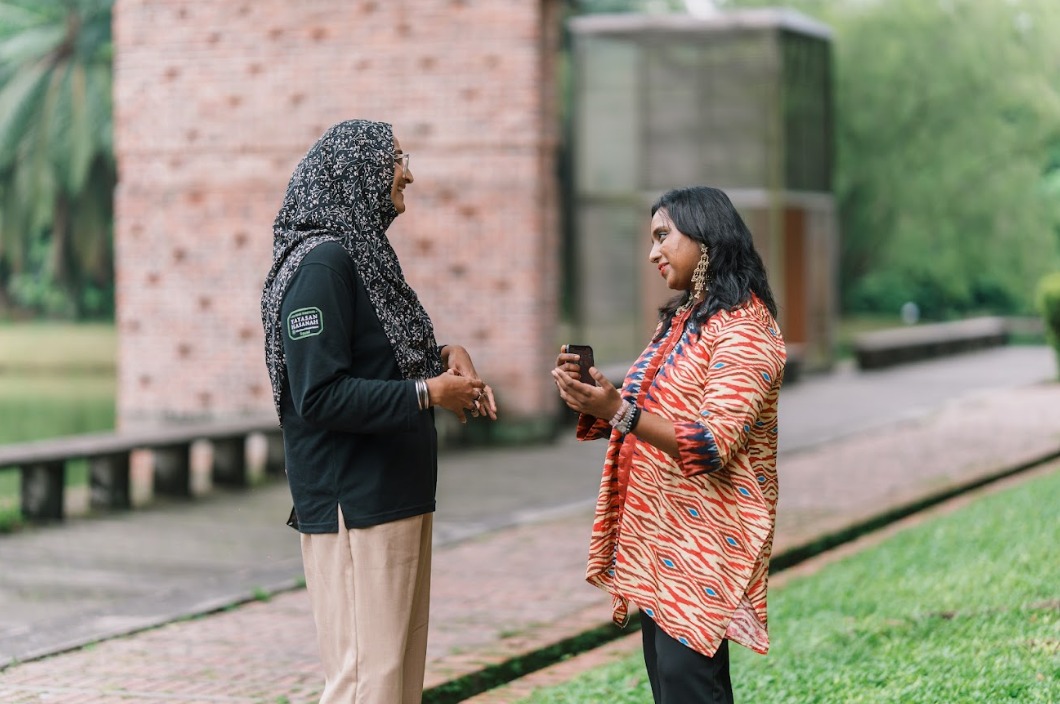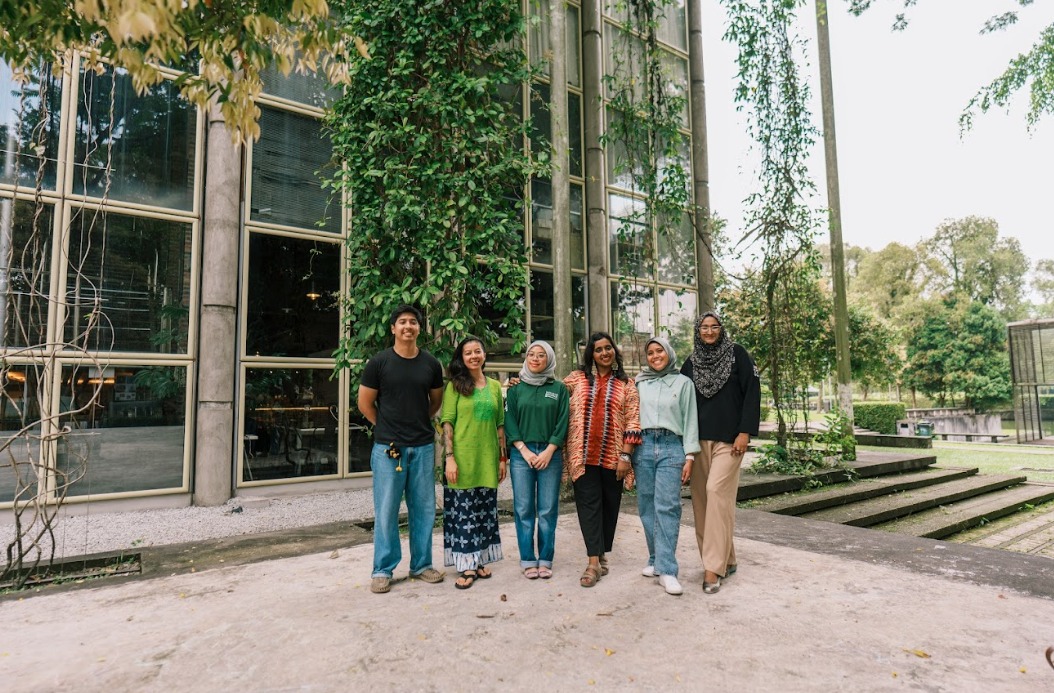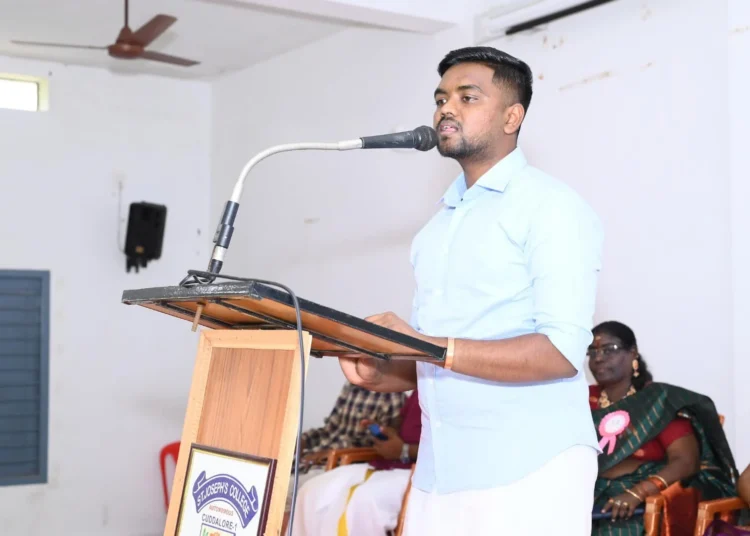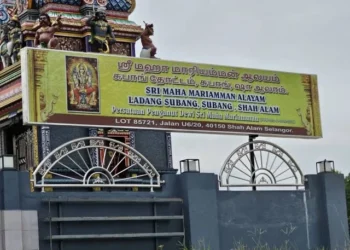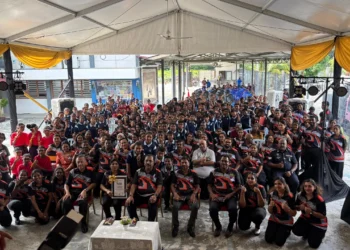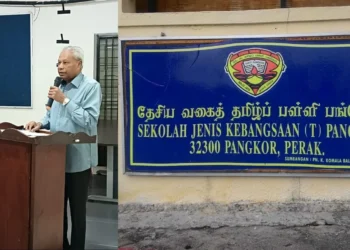Abbernaa Dhevi Kukananthan’s journey is a remarkable story of versatility and purpose. Beginning Bharatanatyam at just six years old, she immersed herself in the world of classical arts before branching into drama and theatre. Her academic pursuit of Human Social and Political Sciences further expanded her worldview, equipping her with the tools to understand people, systems, and structures on a deeper level. Today, at 26, she applies the discipline, precision, and empathy she honed through the arts to her role as an Associate in the Strategy Division at Khazanah Nasional Berhad.
Early Influences: The Language of Dance and Music
For Abbernaa, bharatanatyam was not just an artform but a lens through which she first began to view the world. The discipline of dance, woven with the emotive richness of Carnatic music, provided her with early lessons in empathy and perspective-taking. It became the foundation on which her later academic and professional pursuits were built.
Q: You began your journey in Bharatanatyam at the age of six. How did your early exposure to classical dance and Carnatic music shape your worldview?
A: Bharatanatyam is an artform that centres on storytelling; different narratives, different viewpoints, different characters. All showed through dance, alongside Carnatic music. Hence, growing up in dance, I learnt how to engage with different plotlines/perspectives and to hold space for a range of situations, all at the same time. There is a deep level of human understanding that comes from dance, solely through the stories we tell through movement, expression, and music, and that became the foundation for how I viewed the world.
This ability to hold multiple truths simultaneously has continued to guide her, whether in analysing social systems, engaging with communities, or shaping policy frameworks that consider diverse needs.
Defining Moments in the Arts
Certain experiences become compass points in life, reminding us of who we are and what drives us. For Abbernaa, such a moment happened when she was just 13 years old. It was during a dance performance where she transcended the motions of practice and fully immersed herself in the art.
Q: Can you share a moment from your performing arts journey that deeply influenced your personal or professional life?
A: I have a very special memory, at the age of 13, where I lost myself in a dance performance for the first time and felt completely connected to the movement and music, where I truly became one with my “work”. I have been capturing that feeling ever since and it has guided me to know that if I can lose myself in my “work”, I know I’m on the right track and am heading towards what is meant for me.
That moment of flow, she shares, became a lifelong marker. Today, when navigating professional challenges, she took for that same sense of alignment, knowing that if her work allows her to ‘lose herself’ in it, she is walking the right path.
Parallels Between Arts and Policy
The worlds of classical dance and governance might seem far apart, but Abbernaa sees strong common ground. Both are built on structure, precision, and the ability to stand the test of time.
Q: How do you see the parallels between the discipline of classical arts and the structure of policy-making or governance?
A: Classical dance is grounded, built on foundations/structures that are codified and organised. And that is the essence of policymaking and governance as well. You need stability, structure, and long-term practice for successful dance and policy work – those are the parallels.
Academic Synergy
Her decision to pursue Human, Social and Political Sciences at university was not a departure from her artistic journey but a natural extension of it. For her, both the arts and academic are about exploring connections and understanding the web of human relationships.
Q: You studied Human, Social and Political Sciences at university. How did your background in the arts inform your academic interests and vice versa?
A: Tying back with my first answer, I love seeing how interconnected the world is and how every element synergises and interacts with each other. In my degree, I covered 4 fields: politics, international relations, sociology, and anthropology. You cannot understand one of these 4 fields without the other, and my background in dance gave me that foundational view of the world.
Standing Out with Authenticity
When applying for Khazanah’s prestigious scholarship, Abbernaa drew strength from the lesson that individuality is never a weakness
Q: Khazanah’s scholarship programme emphasizes holistic development. How did your diverse experiences help you stand out during the selection process?
A: A big lesson I learnt through my life in the performing arts was that not fitting a template will always be celebrated. So, I went through the selection process knowing that I did not need to curate a “scholarship image” and that being who I am, with my background and viewpoints of the world, that would be enough. And I am grateful that that was true! Having niches, and having special interests that allow you to contribute in your own way, will always be needed.
Her success is a proof that authenticity resonates more deeply than conformity and that lived experiences carry value in spaces of leadership and decision making.
Giving Back to Society
Abbernaa’s values are deeply rooted in the principle of gratitude, recognising the opportunities that shaped her and ensuring others can access similar pathways.
Q: What does ‘giving back to society’ mean to you personally, and how do you live that value in your work today?
A: To me, giving back to society is double-pronged: 1) acknowledging how you got where you are today – the opportunities, privileges, people, exposure you had; and 2) using this awareness to pass the ladder down, in any way possible. For me, that’s why I wanted to work in Khazanah, to contribute to larger goals beyond myself, and to play any kind of role I can within my sphere of control for national development – to ensure people have access to the worlds I had, whether directly or indirectly. I am aware of everything that got me here today, and I want to make sure that never goes to waste and I utilise that to pass the ladder on in anyway I can.
Identity and Representation
As someone grounded in her Indian cultural heritage, Abbernaa has learned to embrace multiple truth at once. She views her cultural identity not as a barrier but as a strength that enhances how she shows up in professional spaces.
Q: As someone deeply rooted in Indian classical traditions, how do you navigate your cultural identity in a global or corporate setting?
A: To me, many truths can co-exist: I can have various complementary identities (being a global citizen, having my cultural heritage in Malaysia etc) and I never have to compromise on who I am. My view on how I carry myself in any setting, global, corporate etc, is that you will take me as whole and nothing less. I bring with me a background that I am proud of and that has shaped me to be the person I am. So, there is nothing I will ever be ashamed of and more than that, I want to bring people into my worlds. I dress in kurtas to work, I talk about Indian culture whenever I can, and I don’t codeswitch and drown out any part of my heritage to fit into a wider social narrative at work. And I am glad to say people value and respect this.
Her approach is a reminder to young professionals everywhere: authenticity creates bridges, not barriers, in a diverse world.
Preserving Culture for the Future
For Abbernaa, cultural heritage must not only be celebrated but also defended. She believes platforms like Varnam Malaysia plays a vital role in empowering youth to take pride in their roots.
Q: What role do you think platforms like Varnam play in preserving and promoting cultural heritage among younger generations?
A: Related to the answer above, Tamil youth need to firmly believe that you can embrace your whole culture and identity, without compromising on success. You do not have to be “less Indian” or “less Tamil” to fit in and be accepted in a wider national context. Show the world that many truths can co-exist, and Varnam needs to support that effort in cultivating a deeper love and appreciation of culture and heritage in our community.
Advice for the Next Generation
Looking at the future of Indian Malaysians in the arts and public service, Abbernaa’s message is one of perseverance and conviction.
Q: What advice would you give to young Indian Malaysians who are passionate about both the arts and public service?
A: We need more people from our community doing the hard work. Our voices are needed, our views are needed. Even if you face challenge after challenge in getting arts funding or in getting into spaces for community service and nation-building, keep pushing on. We know what we bring to the table, and we need to believe that we will bring value even if people attempt to tell us otherwise. Trust in yourself and your value.
Looking Ahead
Abbernaa’s aspirations stretch beyond personal growth, they are about integrating the arts, humanities, and social sciences into the broader fabric of national progress.
Q: What are your future aspirations, and how do you plan to continue bridging the gap between arts and national development?
A: I want to be more deeply involved in integrating social aspects of development, i.e. arts, humanities, social sciences, into wider national goals. I want to ensure opportunities and access are given to people who want to do this exact work as well, because it is so needed.
From the stage of a Bharatanatyam performance to the halls of policy strategy, Abbernaa Dhevi’s story is one of continuity and conviction. The lesson she carries from dance, the ability to empathize, to find structure, and to celebrate individuality, remain central to her work in national development. Her voice is a reminder that the arts are not separate from governance, but integral to shaping a society that values heritage, inclusivity, and human connection.
Her journey is more than personal achievement, it is an invitation for others to see the arts not just as performance, but as a foundation for leadership and service.

This partnership is between Varnam Malaysia and Yayasan Hasanah, a foundation under Khazanah Nasional
Follow us on Instagram, Facebook or Telegram for more updates and breaking news.


